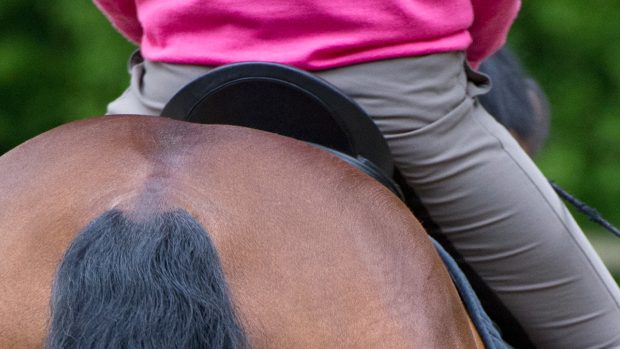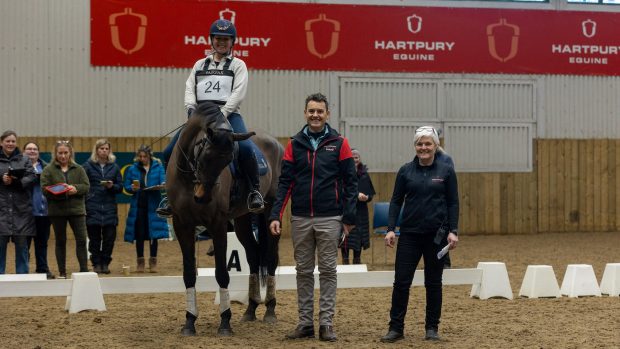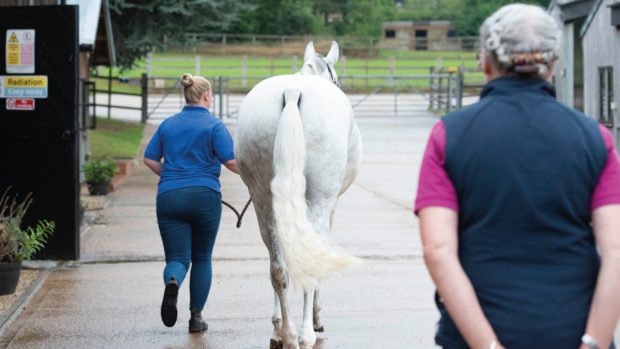A global “sleep intervention package” and quiet zones in lorry parks could help riders get enough quality sleep to improve competition safety – as could taking your own pillow to events.
Two studies, carried out at Hartpury International Horse Trials last year and via a questionnaire sent to 230 FEI-registered event riders, resulted in similar recommendations to “improve the health and wellbeing of athletes and staff in equestrian sport”.
Hartpury senior lecturer Emma Davies, the co-lead on both pieces of research, told H&H they were two distinct pieces of work but “the findings clearly mirror each other”.
“Sleep is something that had never been studied in riders, despite our early mornings and extra-curricular activity,” she said. “One of our students, Sandy Wilson, is doing his PhD on sleep in our athletes and he spoke to some of our staff and students about it, which inspired a conversation about possible research. That expanded into these studies and we now hope to take it further and look at other sleep behaviours in the equestrian community.”
One study involved riders at last year’s horse trials wearing advanced sleep trackers for the duration of the event, and completing a questionnaire covering sleep duration, sleep difficulty, natural times for sleep and demographics.
It found that the average duration of sleep was just over six hours, not varying significantly over the nights of the event.
The other questionnaire, completed by 230 eventers, also asked whether riders had help with horses and yard duties and about caffeine consumption. The findings were similar, also finding that sleep duration was affected by whether there was a pet sleeping in the same place.
“Taking your dog to an event might affect your sleep quality,” Ms Davies said. “But especially from the questionnaire, barriers to sleep were things like noise, from generators for example, not having your usual bed or an uncomfortable mattress; all things that might depend on finances and sleeping arrangements in the lorry.”
Ms Davies highlighted one key recommendation from both studies, to implement “quiet zones” in lorry parks at all competitions.
“Sleep is considered one of the most important elements; the most effective strategy available for elite athletes to support their performance,” she said. “Lack of sleep can mean issues with cognitive function; it can slow your ability to make decisions and impair fine motor skills. Tiny changes in aids can communicate different information to the horse. If riders going across country are potentially impaired by poor sleep, that could put them at risk.”
Ms Davies said the team wants to extend the work to amateur riders, as well as officials and others on the ground at competition, but there are steps all riders can take when staying at competitions.
These include turning off screens an hour before bed, taking your own pillow with you in the lorry, as well as ear plugs, and considering apps that aim to improve sleep by emitting white noise, although it is wise to become used to these at home first.
“This has been a real toe in the water,” Ms Davies said. “We don’t think this is just an athlete problem, it’s a horse person problem; sleep is defined by our commitment to our horses and there are things we can do in education to improve that. There’s a safety element for anyone involved with horses.”
Eventer Freddie Carden told H&H he was delighted to help with the project, by wearing the tracker at last summer’s competition, and that he was interested to find out how much sleep he had on each night.
“You know how us eventers love a party!” he said. “But although I went to the drinks on Saturday night, I still had a good sleep. It was worth doing to see if you actually sleep well at events, as stress can have a lot of impact.”
Freddie said he slept in his lorry for months as he was moving between yards so he is used to it but he could see how a change in bed might affect others’ sleep.
“I’d never thought about the impact of sleep before; I don’t think anyone really had,” he said. “I’d be interested to see if professionals sleep better at events than amateurs as they’re more used to it but it was definitely a good thing to do.”
You might also be interested in:

Study aims to identify how horses show happiness with humans

Concern as study found dressage horses behind the vertical earned higher scores

Subscribe to Horse & Hound magazine today – and enjoy unlimited website access all year round
Horse & Hound magazine, out every Thursday, is packed with all the latest news and reports, as well as interviews, specials, nostalgia, vet and training advice. Find how you can enjoy the magazine delivered to your door every week, plus options to upgrade your subscription to access our online service that brings you breaking news and reports as well as other benefits.




